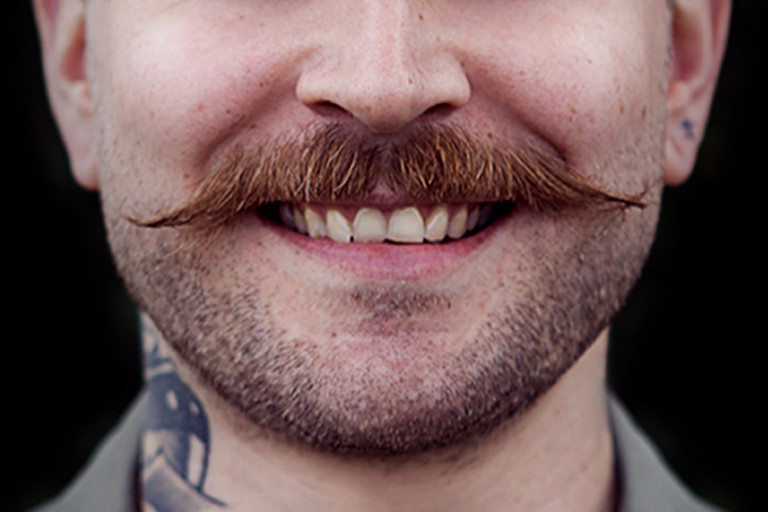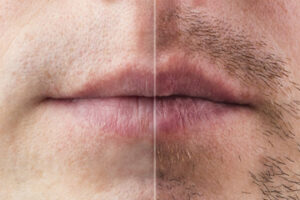Moustache hair transplant is a cosmetic procedure that has been gaining popularity in recent years. The procedure involves transplanting hair follicles from the scalp to the moustache area, resulting in a fuller and more defined moustache. However, like any other cosmetic treatment, it is important to weigh the benefits and risks before undergoing a moustache hair transplant.
Is it safe to get a moustache transplant?
One of the primary concerns that people have when considering a moustache hair transplant is the safety of the treatment. Like any other surgical procedure, there are risks associated with the moustache transplant. However, if the procedure is performed by a qualified and experienced surgeon, risk can be avoided.
The most common risk associated with a moustache transplant is infection. This can occur if the patient does not follow proper aftercare instructions or if the surgical site becomes contaminated. To minimise the risk of infection, it is important to follow all aftercare instructions provided by the surgeon.
Another potential risk of a moustache transplant treatment is scarring. While scarring is rare, most skilled surgeons take great care to minimise scarring and ensure that the results look natural.
Is moustache transplant painful?
Another common concern that people have when considering a moustache transplant is the pain associated with the procedure. While there is some discomfort associated with the procedure, most patients find the treatment to be relatively painless.
The surgeon will administer local anaesthesia to the moustache area before beginning the moustache transplant treatment. This will help to minimise any discomfort or pain during the treatment. However, some patients may experience mild discomfort or swelling in the days following the procedure. This can usually be managed with over-the-counter pain medication and typically subsides within a few days.
Risks of moustache transplant
While there are many benefits to getting a moustache transplant, there are few risks associated with the procedure. As previously mentioned, infection and scarring are the most common risks associated with the procedure. However, these risks can be minimised by choosing a qualified and experienced surgeon and following all aftercare instructions.
Another potential risk of a moustache transplant is the possibility of the transplanted hair follicles not taking root. This can result in a less than desirable outcome and may require additional procedures to achieve the desired result. However, this risk can be minimised by choosing a skilled and experienced surgeon who uses the latest techniques and technology.
What are the reasons for moustache transplant?
There are a variety of reasons why someone might consider a moustache transplant.
- Some men may have naturally sparse or patchy facial hair, which can be a source of self-consciousness or embarrassment.
- Others may have experienced hair loss in the moustache area due to injury, scarring, or medical conditions such as alopecia areata.
- In addition to these reasons, there are also cosmetic reasons why someone might consider a moustache transplant. For example, a fuller and more defined moustache can enhance the overall appearance of the face and create a more masculine or distinguished look.
Benefits of moustache transplant
There are many benefits to getting a moustache hair transplant. First and foremost, the treatment can help to boost self-confidence and improve overall self-esteem. For men who have always struggled with sparse or patchy facial hair, a fuller and more defined moustache can make a big difference in how they feel about themselves.
In addition to the psychological benefits, there are also aesthetic benefits to getting a moustache transplant. The entire aspect of the face can be improved, giving off a more polished and sophisticated image with a larger, more defined moustache.
The steps to prepare for moustache Transplant
Meet Your Hair transplant doctor
Schedule several sessions with your doctor prior you decide to go for a moustache hair transplant treatment to remove all concerns before you decide to go for a treatment to transplant your moustache.
Avoid alcohol
Do not drink alcohol prior to the procedure. If a significant amount of toxin has already been present within your body, the anaesthesia may cease to function.
Grow Your Hair
Don’t cut your facial hair prior to transplant particularly on the side of your scalp. This is due to the fact that the area behind your scalp is the typical area of the moustache that is a donor for transplant.
Do not smoke
Nicotine in cigarettes causes adverse reactions to the skin, and also slows the healing process.
Stay clear of blood thinners
It is vital not to take blood thinners prior to the transplant to avoid problems.
Medical Tests
Though a moustache transplant can be an easy procedure however, you must take the medical tests and assessments with your doctor to gain greater understanding.
Learn About Your Allergies
It is important to understand the causes of your allergies and avoid the triggers as often as possible. If you suffer from infections as a result of allergies, it could result in a number of issues.
The transplant of the moustache is not as well-known as other transplants of facial hair. It is due to the fact that people are not informed about the procedure. If you want an entire moustache, then you can call Dr. Venus to restore hair on the line of your moustache.
We have the most experienced staff of specialists in transplant surgery that can deliver your desired results and satisfaction.
Conclusion
Overall, a moustache hair transplant can be a safe and effective way to achieve a fuller and more defined moustache. However, it is important to weigh the benefits and risks before undergoing the treatment. Dr Venus has experienced and experts who specialise in moustache transplantation.

